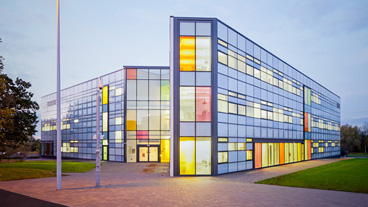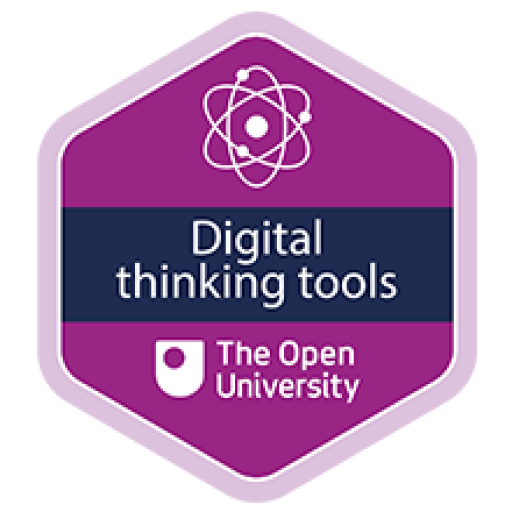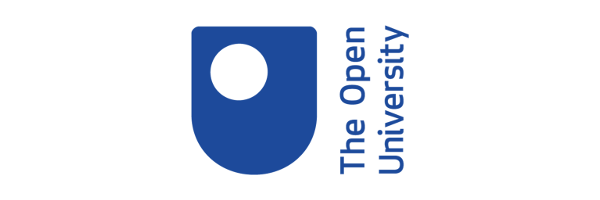@logicMachines on Mastodon,
ORCID
... and some LEGO logic fun
Personal page - views are my own
- November, 2025 Coherence of Argumentative Dialogue Snippets: A New Method for Large Scale Evaluation with an Application to Inference Anchoring Theory EMNLP, 2025. [Underline page for the video presentation]
- 25 March, 2025 Open Research in artificial intelligence: A personal account of the long view [YouTube video]
- 25 March, 2025 ArmEducationX: Introduction to AI goes live.
- July, September, 2024: Are conversational large language models speakers? at SemDial 2024 (11 September) [paper][poster]. Based on this [presentation] at Computational Linguistics in the Hothouse, 6 July 2024.
- March, 2024: Upcoming Keynote talk on Generative AI, Opening Up Minds and Argument Mapping at ALLT 2024.
- October, 2023: OU EPSRC Doctoral Prize Fellowships, Closing Date: 15 January, 2024 - 12:00.
- September 2021: Fully-funded PhD studentship on Multimodal Dialogue Systems (position now closed)
- January 2021: The Opening Up Minds project on Engaging Dialogue Generated from Argument Maps has started. For more, listen to this interview on the Boundless podcast.
- March 2020: It is a pleasure join the COLING2020 team as remote presentations co-chair.
- February 2020: The Digital Thinking Tools badged open course is live.
Dr Paul Piwek, SFHEA
Senior Lecturer
AI/IM research group
lead
School of Computing and Communications

|
My research focuses on computational modelling of Inference, Reasoning and Language Generation in Dialogue. It has a strong interdisciplinary dimension, with links to research in Artificial Intelligence, Linguistics, Psychology - specifically, Cognitive Science - and Scholarship of Teaching and Learning. Central to my work is the aim to understand and model the principles underlying communication in dialogue. This ranges from cooperative to non-cooperative dialogue, verbal and non-verbal communication (in particular, pointing gestures), spontaneous and scripted dialogue, and, finally, formal and computational modelling of the inferences that dialogue participants draw individually and jointly during dialogue. I advocate and practise open research, having made available both data sets and tools that were created as part of my research projects. I was co-organiser of the first Shared Task and Evaluation Campaign for Question Generation, an open competition to compare different Question Generation approaches. I am keen for my research to translate into solutions for practical challenges. For instance, the dialogue generation research from my CODA project has been used to semi-automatically generate videos (with dialogue between computer-animated characters) for the public facing website of the Papworth trust. The videos inform their service users, conveying the same information as the original leaflets, but in a more engaging way. Papworth trust work with disabled people, supporting thousands of people, their families and carers. Currently, I am leading the Opening Up Minds project (EPSRC-funded, Responsible NLP for Intelligent Interfaces Panel), which aims to build AI chatbots that help people pass the Ideological Turing Test. The background to this work is the societal challenge of ever more polarisation of opinions in society. My teaching includes both undergraduate and postgraduate modules. I led the development of a free course on Digital Thinking Tools (co-authored with Richard Walker), which includes a session on From Thinking Tools to AI. |


|
and Networks
Current projects
- Principal Investigator Digital Thinking Tools for Education and Depolarisation Open University Open Societal Challenge (2023-present) including the Open University / Hong Kong Metropolitan University jointly funded Digital Thinking Tools in Action project (2024 - 2026).
- Primary supervisor for Multimodal Dialogue System for Pair Programming (2022-2026), EPSRC DTP/Toshiba Europe Ltd.
Past projects
- Principal Investigator at lead research organisation of the Opening Up Minds: Engaging Dialogue Generated from Argument Maps project (2021-2023), aiming to build AI tools to help people pass the Ideological Turing Test. (EPSRC-funded, Responsible NLP for Intelligent Interfaces Panel: £730K of which £250K to the OU)
- Principal Investigator on the eSTEeM Student co-design of confidence-building formative assessment for Level 1 Computing & IT students project (2019-2023). (Internal funding: £5K) Winner 2023 eSTEeM Scholarships Projects of the Year
- Principal investigator on the Institute of Coding project on Challenges with Learning to Program and Problem Solve (2019-2020). (IoC funding: 5K)
- Member of PRIME (Post-human Resilience in Major Emergencies) team. (Internal funding: £25K)
- Principal Investigator on the eSTEeM ArguEd (Argumentation Education) project (2011 - 2013). (Internal funding: £2K) See Simon Buckingshum's blogpost about the project.
- Co-investigator on the eSTEeM iChart project (2011 - 2013). (Internal funding: £20K)
- Principal Investigator at the OU on the NESTA DataMIX project (Lead partner/coordinator: Hua Dong at Brunel) which explores more inclusive means of communicating data (2008 - 2012). (Funding: £12K)
- Principal Investigator on the EPSRC CODA project - Coherent Dialogue Automatically generated from text (2009 - 2011). (Funding: £170K)
- Participant of the informal MREDI project (Multimodal Referring Expressions in Dialogue) with Neuchatel, Trinity College Dublin and University of Malta (2008 - present).
- Participant of the EPSRC MATREX project on Natural Language Processing in Requirements Engineering (2008 - 2011).
Past projects (as Research Fellow)
- EPOCH Network of Excellence (Excellence in Processing Open Cultural Heritage) (2004) [EPOCH iGuide low res screenshot]
- Semantic Mining Network of Excellence (2004-2007)
- NECA Project (A Net Environment for Embodied Emotional Conversational Agents) (2001-2004) [NECA eShowroom low res screenshot]
- WYSIWYM (What You See is What you Meant) project on knowledge editing technologies.
- CLIME Project (Computerized Legal Information Management and Explanation) (1998-2001) [CLIME Interface low res screenshot]
- DENK Project (Dialogue Management and Knowledge Transfer) (1994-1998) [DENK system low res screenshot]
Students

Prospective PhD Students
If you are interested in becoming a research student (PhD), do have a look at these PhD Topics and contact me if you are interested in one or more of the topics.
Current PhD/EdD Students
- Cecilia Domingo Merino, Multimodal Dialogue System for Pair Programming (EPSRC DTP CASE studentship with Toshiba Cambridge Research Laboratory, Toshiba Europe),
- Simon Savage, Identifying and overcoming barriers to distance learning of programming.
Past PhD Students
- Nitu Bharati, Classifying Stance in News Articles: Use of Attribution Relations and Source Expertise (PhD 2023),
- Pasquale Iero, Deductive Question Generation (part sponsored by WDS - A Xerox Company),
- Suraj Pandey, Modelling Alignment and Key Information for Automatic Grading (PhD 2022),
- Jacopo Amidei, Evaluating the Evaluators: Subjective Bias and Consistency in Human Evaluation of Natural Language Generation (PhD 2021),
- Richard Doust, A domain-independent model of suspense in narrative (PhD 2015),
- Sharon Moyo, Effective Tutoring with Empathic Embodied Conversational Agents (PhD 2014),
- Brian Plüss, A Computational Model of Non-Cooperation in Natural Language Dialogue (PhD 2014),
- Tu Anh Nguyen, Planning accessible explanations for entailments in OWL ontologies (PhD 2013),
- Eva Banik, A Minimalist Approach to Generating Coherent Texts (PhD 2011),
- Norton Trevisan Roman, Affect and Automatic Summarisation of Dialogue (PhD 2007).
Past MSc Students
- Kieran Crossan
- Lucy Withington (Awarded WCIT Outstanding Information Technology Student Prize for MSc project).
- Rosanna Luke
- David Jakes (Awarded WCIT Outstanding Information Technology Student Prize for MSc project),
- Stuart Elliston,
- Stephen Goodwin,
- Simon Symes,
- Mike Williams,
- Stephen Holmes,
- Raymond McCrae,
- Charles Bennett (Awarded WCIT Outstanding Information Technology Student Prize for MSc project),
- Keith Godwin,
- Chris Anders,
- John White,
- Noel Cosgrave,
- Rekha Taheem,
- Rob Fleming,
- Neil Hastings,
- Brendan Wyse,
- Dugald Foreman,
- Linas Jakucionis,
- Malin Bergenstrahle.
PhD Thesis Examiner
- Angel Pavon Perez (Open University, 2025)
- Dimitris Gkoumas (Open University 2021)
- Thanh Tien Vu (Open University, 2017)
- Simon Butler (Open University, 2016)
- Ruud Koolen (Tilburg, 2013)
- Carsten Brockmann (Edinburgh, 2009)
- Robert Logie (Open University, 2009)
PhD Panel Chair, Open University
- Vikram Mehta, 2022
- Matthew Barker, 2021
- Silvana Costantini, 2021
- Paul Warren, 2017
- Tamara Lopez, 2016
- AISB Public Understanding and Schools Liaison Officer (2018-2024).
- Invited Speaker
- MOG 2010, the Third Workshop on Multimodal Output Generation, Trinity College Dublin, July 5-6. 2010.
- CID III, 2008 Constraints in Discourse workshop, University of Potsdam, Germany, July 30 - August 1, 2008.
- DECALOG 2007, the 11th Workshop on the Semantics and Pragmatics of Dialogue, University of Trento, Italy.
- Editor of section on Inferentialist Accounts of Meaning and Content of philpapers
- Member of the editorial board of Dialogue and Discourse.
- Member of the EPSRC College.
- Information officer/Webmaster 2003-2009 of the ACL SIG on Computational Semantics (SIGSEM);
- Guest Editor
- Special Issue on Question Generation of Dialogue & Discourse, 3(2), 2012. (Editors: P. Piwek and K.E. Boyer)
- Special Issue Dialogue Modelling and Generation of Discourse Processes, 44(3), 2007. (Editors: P. Kuehnlein and P. Piwek)
- Special Issue Coherence in Dialogue and Generation of Journal of Logic, Language and Information, 16(4), 2007. (Editors: R. Kibble, P. Piwek and I. van der Sluis)
- Special Issue Perspectives on Dialogue of the Journal Research on Language and Computation 4(2/3), 2006 (Editors: R. Kibble & P. Piwek). [Introduction .pdf] (pages 143-152)
- Chair/Organizer/Steering Committee
- COLING2020 remote presentations co-chair.
- ACL 2019 Area Chair (Generation).
- EPSRC Network on Reference (RefNet) Steering Committee member (2012-2015).
- 3rd Workshop on Question Generation (QG 2010), Pittsburgh, June 18, 2010. [Co-chair with Kristy Elizabeth Boyer]
- 1st Question Generation Shared Task and Evaluation Campaign (QGSTEC 2010), Pittsburgh, June 18, 2010. [Co-organizer with Vasile Rus, Brendan Wyse, Svetlana Stoyanchev, Mihai Lintean and Cristian Moldovan]
- Workshop on the Question Generation Task and Evaluation Challenge, September 25-26, 2008 National Science Foundation, Arlington, VA. [Member of Steering Committee]
- Workshop on Coherence in Generation and Dialogue. ESSLLI 2006, Malaga, Spain, July/August 2006. [Co-chair with Rodger Kibble and Ielka van der Sluis]
- Symposium on Dialogue Modelling and Generation at the annual meeting of the Society for Text and Discourse (2005). [Co-chair with Peter Kuehnlein and Claudia Sassen].
- Third International Conference on Natural Language Generation (INLG 2004). [Co-chair with Anja Belz and Roger Evans];
- Doctoral colloquia:
- The CRC PhD Student Conference. Milton Keynes 2010 (3 and 4 June ), 2009 (18 and 19 June) and 2008 (12 and 13 June). [Video]
- The Flatlands 2007 Natural Language Processing Meeting. London, 14 June 2007. Co-organizer/chair with Donia Scott.
- The 2004 and 2005, doctoral colloquia of the Semantic Mining Network of Excellence, Balaton fured, Hungary. Co-organizer with Marian Petre.
- First and Second ITRI/NLCL research student workshops (2003 and 2004). Co-organizer/co-chair with John Carroll of Sussex University.
- Programme Committees/Reviewing 2001 - 2013
- Programme Committees/Reviewing since 2014:
- 8th International Natural Language Generation Conference (INLG 2014), Philadelphia, PA, USA, 19 June - 21 June (co-located with SigDial'14).
- The 15th SIGDIAL Meeting on Discourse and Dialogue (SIGDIAL 2014), Baltimore, MD, USA, on June 18-20, 2014.
- The 52nd Annual Meeting of the Association for Computational Linguistics (ACL 2014), Baltimore, Maryland, USA, on June 22 - 27, 2014.
- The 25th International Conference on Computational Linguistics (COLING 2014), Dublin, Ireland, August 23-29, 2014.
- RefNet Workshop on Psychological and Computational Models of Reference Comprehension and Production, Sunday 31 Aug 2014, Department of Informatics, University of Edinburgh, UK
- IWCS 2015: The 11th International Conference on Computational Semantics. Queen Mary University of London, UK, on 14-17 April 2015.
- CMNA 2014, 14th workshop on Computational Models of Natural Argument joint with the 1st International Workshop on Methodologies for Research on Legal Argumentation in association with JURIX 2014, 10th December 2014 - Krakow - Poland.
- The 53rd Annual Meeting of the Association for Computational Linguistics and the 7th International Joint Conference on Natural Language Processing (ACL-IJCNLP 2015), Held at the China National Convention Center (CNCC) in Beijing, China, July 26-31, 2015.
- The 16th SIGDIAL Meeting on Discourse and Dialogue. SIGDIAL 2015 will be held in Prague, Czech Republic, on September 2-4, 2015.
- International Conference Recent Advances in Natural Language Processing (RANLP'15) to be held in Hissar, Bulgaria, 7-9 September 2015.
- CMNA XV: 15th Workshop on Computational Models of Natural Argument, with PRIMA 2015 (Principles and Practice of Multi-Agent Systems) 25th October 2015 - Bertinoro - Italy.
- 7th International Workshop on Spoken Dialogue Systems, IWSDS 2016, which has the special theme Dialogues with Social Robots: Enablements, Analyses, and Evaluation. Riekonlinna, Saariselka, January 13-16, 2016.
- 54th Annual Meeting of the Association for Computational Linguistics (ACL 2016), Berlin, Germany, on August 7 - 12, 2016.
- CMNA, the 16th workshop on Computational Models of Natural Argument, will be co-located with IJCAI, in New York, during the workshop programme on July 9-11.
- Interspeech 2016, San Francisco, California on September 8-12, 2016.
- The 9th International Natural Language Generation conference INLG 2016 will be held in Edinburgh, Scotland, September 5-8, 2016.
- 17th Annual SIGdial Meeting on Discourse and Dialogue (SIGDIAL 2016), September 13-15 in Los Angeles, USA.
- 1st International Workshop on Domain Adaptation for Dialog Agents (DADA), Co-located with European Conference on Machine Learning and Principles and Practice of Knowledge Discovery (ECML-PKDD) Riva del Garda, Italy, September 19-23, 2016 (workshop date to be published).
- The 15th Conference of the European Chapter of the Association for Computational Linguistics EACL 2017, Valencia, 3-7 April 2017.
- International conference on computational natural language semantics, namely the 12th biennal conference of the ACL special interest group in computational semantics (IWCS), Montpellier, 19-22 September, 2017.
- Formal approaches to the dynamics of linguistic interaction (FADLI), Workshop to be held at ESSLLI 2017, July 17th-21st 2017.
- The 55th Annual Meeting of the Association for Computational Linguistics 2017 (ACL 2017). ACL 2017 will be held in Vancouver, Canada, on July 30 - August 4, 2017.
- Recent Advances in Natural Language Processing (RANLP), Varna, Bulgaria, September 4-6, 2017.
- The 18th Annual SIGdial Meeting on Discourse and Dialogue (SIGDIAL 2017), August 15-17 in Saarbruecken, Germany.
- 18th Workshop on Computational Models of Natural Argument (CMNA 2018), 4-6 April 2018, University of Liverpool, UK - as part of the AISB 2018 convention.
- DSTC6, Dialog System Technology Challenges, Long Beach, USA, December 10, 2017.
- NAACL 2018. The 2018 Conference of the Association for Computational Linguistics will be held in New Orleans, Louisiana, June 1 - June 6, 2018.
- AREA - Annotation, Recognition and Evaluation of Actions, in conjunction with the 11th edition of the Language Resources and Evaluation Conference (LREC 2018), 7 May 2018, the Phoenix Seagaia Resort, Miyazaki, Japan.
- 56th Annual Meeting of the Association for Computational Linguistics (ACL 2018), 15-20 July 2018, Melbourne.
- SIGDIAL 2018, Melbourne, Australia, on July 12-14, 2018.
- The 27th International Conference on Computational Linguistics (COLING 2018), August 20-26, 2018, Santa Fe, New Mexico, USA
- The 11th International Conference on Natural Language Generation (INLG 2018), Tilburg, The Netherlands, November 5-8, 2018.
- 13th International Conference on Computational Semantics (IWCS 2019), the University of Gothenburg, Sweden on the 23-27th May 2019.
- 20th SIGdial Meeting on Discourse and Dialogue in 2019 (SIGDIAL 2019), Stockholm, Sweden September 11-13, 2019.
- The 57th Annual Meeting of the Association for Computational Linguistics (ACL), Florence (Italy) from July 28th to August 2nd, 2019. [Area Chair (AC) for ACL 2019 in the broad area of Generation]
- 19th Computational Models of Natural Argumentation (CMNA) workshop (in conjunction with the Persuasive Technology conference), Limassol, Cyprus, on April 9th 2019
- SIGDIAL 2019, KTH Royal Institute of Technology in Stockholm, Sweden, September 11-13, 2019.
- INLG 2019: 12th International Conference on Natural Language Generation, Tokyo, Japan, Oct 29, 2019 - Nov 1, 2019.
- RANLP 2019: Recent Advances in Natural Language Processing. Varna, Bulgaria, September 2-6.
- 21st Annual Meeting of the Special Interest Group on Discourse and Dialogue SIGDIAL 2020, JUMP, Boise, Idaho (held as virtual conference) July 1-3.
- The ACM conference on Designing Interactive Systems (DIS2020), July 6-10, 2020. Eindhoven.
- The 28th International Conference on Computational Linguistics (COLING 2020), December 8-11, 2020, Barcelona.
- Virtual SemDial 24 (WatchDial), The 24th Workshop on the Semantics and Pragmatics of Dialogue (Virtual), 18-19 July 2020, Hosted online from Brandeis University, Waltham (Watch City), MA.
- The 58th Annual Meeting of the Association for Computational Linguistics (ACL 2020), online, 5-10 July.
- The 22nd Annual Meeting of the Special Interest Group on Discourse and Dialogue (SIGDIAL 2021) will be held on 29-31 July 2021 in Singapore.
- AREA II Workshop Annotation, Recognition and Evaluation of Actions. August 2-6, 2021.
- IWCS 2021 Groningen: the 14th International Conference on Computational Semantics (16-18 June 2021)
- The 16th Conference of the European Chapter of the Association for Computational Linguistics. EACL 2021.
- Recent Advances in Natural Language Processing (RANLP'2021), 1 to 3 September 2021.
- 14th International Conference on Natural Language Generation (INLG 2021), Aberdeen, UK, 20-24 September 2021.
- The 21st Workshop on Computational Models of Natural Argument (CMNA21).
- The 29th International Conference on Computational Linguistics (COLING 2022), October 12 - 17, 2022, Gyeongju, Republic of Korea.
- The 2022 Conference on Empirical Methods in Natural Language Processing (EMNLP 2022), Abu Dhabi, December 7-11, 2022.
- Workshop on Computational Models of Natural Argument (CMNA 22).
- 15th International Conference on Computational Semantics (IWCS 2023), Nancy, France, from 20th to 23rd June 2023.
- Workshop on Computational Models of Natural Argument (CMNA), 2023
- 24th Meeting of the Special Interest Group on Discourse and Dialogue (SIGDIAL)
- Workshop on Semantics in Organisational Communication (at IWCS 2023)
- LREC-COLING 2024 - The 2024 Joint International Conference on Computational Linguistics, Language Resources and Evaluation. Torino, Italy.
- 28th edition of SemDial, the University of Trento in Italy on 11-12 September 2024
- 25th Meeting of the Special Interest Group on Discourse and Dialogue SIGDIAL, September 18, 2024 - September 20, 2024, Kyoto University, Kyoto, Japan.
- The 24th Computational Models of Natural Argument (CMNA) workshop will be held on September 17th as part of the COMMA 2024 conference in Hagen (Germany).
- Main and demo session of The 31st International Conference on Computational Linguistics in 2025 (COLING 2025).
- The 63rd Annual Meeting of the Association for Computational Linguistics (ACL 2025).
- SIGDIAL'25 Conference: Research in Dialogue and Discourse, 2025.
- Bialogue - SemDial 2025, the 29th Workshop on the Semantics and Pragmatics of Dialogue, Bielefeld.
- 25th Workshop on Computational Models of Natural Argument (CMNA'25) [Online].
- Argument and Computation Journal, Artificial Intelligence Journal, Artificial Intelligence Review, CLASP Papers in Computational Linguistics, Computers and Education, Computational Linguistics, Dialogue and Discourse, Discourse Processes, Erkenntnis, Expert Systems, International Journal of AI Tools, International Journal of Human-Computer Studies, International Journal of Humanoid Robotics, Journal of Logic, Language and Information (JoLLI), Journal of Pragmatics, Journal of Web Semantics, Knowledge and Intelligent Systems (KAIS), Linguistics and Philosophy, Natural Language Engineering, Presence: Teleoperators and Virtual Environments, Research on Language and Computation, Synthese, Topics in Cognitive Science (topiCS).
- I have been a reviewer for the AHRC, EPSRC, ERC, ESRC, ESF, Estonian Research Council, MRC, NWO and NSF.
- I am member of the EPSRC Peer Review College.
- Other:
- In 2008, I was selected by the National Endowment for Science, Technology and the Arts (NESTA) for participation in their Crucible 2008 labs for early-career researchers.
- In 2006, I received funding, under a Memorandum of Understanding between the Open University and National Institute of Informatics (NII, Tokyo), for three months of research leave at the NII in the lab of Dr. Helmut Prendinger.
- In 2006, I was selected for a 'Special Parliamentary Reception and Competition' in the House of Commons for 'Britain's Top Younger Scientists, Engineers and Technologists'.
RefNet course on Multimodal reference with Ielka van der Sluis and Albert Gatt, 27-29 August, 2014, Edinburgh.
ESSLLI 2007 tutorial on Introducing Dialogue Games (with Rodger Kibble), Trinity College Dublin, August 13-17, 2007. [course material]
Introducing Dialogue Games. Three day mini-course at the Computing Institute of the University of Campinas funded by FAPESP and UNICAMP (1 - 3 August 2007).
Natural Language Generation for Embodied Agents. At the 7th European Agent Systems Summer School (EASSS) (July 2005, Utrecht) with Emiel Krahmer. [course material]
Varieties of Anaphora. Taught at the 12th European Summer School in Logic, Language and Information (ESSLLI) (August 2000, Birmingham) with Emiel Krahmer. [course material]
[Back to Index]
Digital Thinking Tools I led the development of a free online course on digital thinking tools. The course was co-authored with my colleague Richard Walker.
TM112 I'm chairing the presentation team of TM112 (Introduction to Computing & IT 2), having also chaired its production. The module covers three themes: 1) Essential Information Technologies, 2) Problem solving with Python and 3) Information Technologies in the wild. Together with TM111 (Introduction to Computing & IT 1) it succeeds TU100 (My digital life).
M269 I chaired the production team of M269 (Algorithms, Data Structures and Computability), which went live in October 2013 and had its last presentation in 2020 (when it was succeeded by a New Edition). The module used Python for the programming activities. I also chaired the module in presentation in 2013 and 2014.
TU100: My Digital Life: I wrote two units for this module, one entitled Information Overload and another entitled Digital Freedom: the good, the bad and the internet. The latter is about speech and action on the internet and the ethical questions this raises. It focuses on analysing and constructing arguments on this topic with the help of a technique known as argument mapping.
Currently, I'm on the presentation team focussing on the use and improvement of interactive computer-marked assessment in this module.
M801/T802: Research project and dissertation which is part of the postgraduate programme in computing at the Open University. I am both a specialist advisor (2005 - present) and, since 2008, tutor (Associate Lecturer) on this course.
M150: Data, Computing and Information. The major theme of this course is the transformation of data into information using computers. Topics that are covered include what software is and how to program a modern computer, legal, political and ethical issues surrounding the use of computers such as the digital divide and surveillance, privacy and security. I am member of course team at the Open University (2005 - 2011).
TILT: Topics in Language Technology. Module for Computer Science Students at the University of Brighton. 2000 - 2004. Co-taught with several ITRI colleagues.
Pragmatics of Communication. Module for Communication Studies students at the University of Brighton. 2002 - 2004. I was the module leader. Other lecturers on this module are: David Horner, Irmi Karl and Kees van Deemter.
[Back to Index]
- Doctoraal examen (equivalent to MA) in
Computational
Linguistics at the University of Tilburg in 1993 (Cum Laude; supervisor:
dr. R. Muskens).
- During my studies I did a traineeship at the IMS of the University of Stuttgart (supervisor: Prof. T.E. Zimmermann).
- Postdoctoraal examen (equivalent to MA) in the Philosophy of Linguistics and Cognitive Science at the University of Amsterdam in 1994 (Cum Laude; supervisor: Prof. dr. R. Bartsch).
- PhD at IPO (Institute for Perception Research), Eindhoven University/Philips Research Labs in 1998 (supervisors: dr. ir. R.J. Beun, Prof. D. Bouwhuis and Prof. H. Bunt; examiners: Prof. J. Baeten, Prof. H. Kamp, dr. R. Nederpelt, Prof. R. Scha, dr. K. van Deemter).
- AISB (The Society of the Study of Artificial Intelligence and Simulation of Behaviour)
- SIGDIAL (SIG on Dialogue)
- SIGGEN (SIG on Natural Language Generation)
- SIGSEM (SIG on Computational Semantics)
- CLUK (Computational Linguistics in the UK)
Details
Dr. Paul Piwek
School of Computing and Communications
Centre for Research in Computing
The Open University
Walton Hall
MK7 6AA
Milton Keynes
United Kingdom
Phone: 00 44 (0) 1908 85 89 14
Fax: 00 44 (0) 1908 65 21 40
Email:
[Back to Index]
